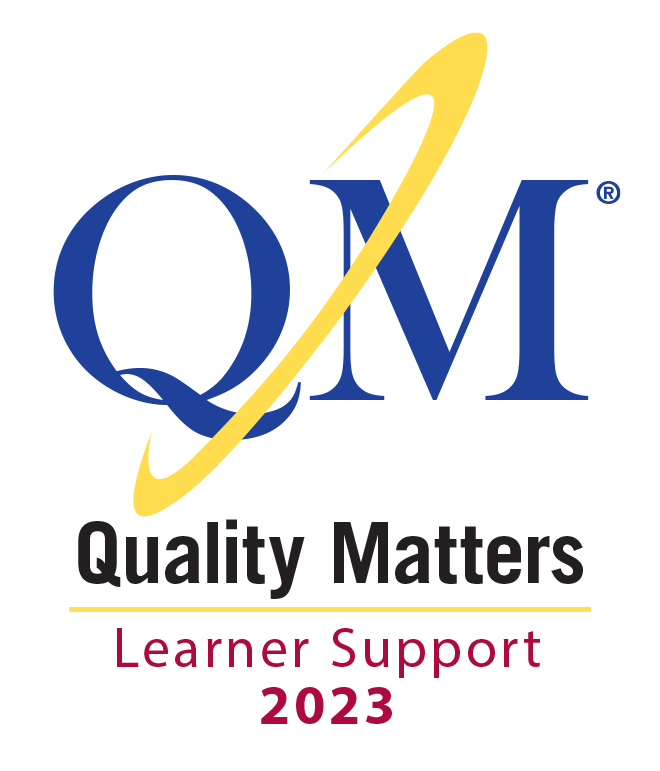Questions? Request Information
Degree Completion Journey
The core curriculum for the Master of Science in Technology Management covers the management essentials needed to make technology decisions that solve business problems in an organization. Coursework includes strategy, governance, statistics and data sciences, data analytics, and artificial intelligence specific to management roles. In this technology management program, you’ll explore business essentials such as project planning, financial accounting, and business ethics. You will also select three elective courses that will add further focus to your degree program.
* Students who waive AIS 620 or BUS 591 are required to take 33 total program credits in order to meet graduation requirements. Students who waive AIS 620 and BUS 591 are required to take 30 total program credits in order to meet graduation requirements.
^ This course must be taken last in the program.
To be awarded the Master of Science in Technology Management (MSTM) degree, students must maintain a minimum 3.0 GPA and complete a minimum of 36 credit hours of coursework. Students are required to complete the nine core courses; each course is equivalent to three credit hours. Students must also select and complete three of the elective courses. Each elective course is three credit hours.
Students who submit official transcripts indicating that they have earned a Bachelor’s degree or higher in Business, Business Administration, Accounting, Finance, or Economics or have successfully completed undergraduate coursework in Accounting or Finance with a grade of “C” or higher, or graduate coursework in Accounting or Finance with a grade of “B” or higher will be exempt from the requirement to take BUS 591 Financial Accounting & Analysis.
Students who have successfully completed undergraduate coursework in Statistics, Business Statistics, or Quantitative Methods with a grade of “C” or higher or graduate coursework in Statistics, Business Statistics, or Quantitative Methods with a grade of “B” or higher will be exempt from the requirement to take AIS 620 Statistics and Data Sciences for Business Leaders. Students are responsible for notifying the University if they believe they have met these requirements through previous college coursework during the application process and are responsible for submitting official transcripts for verification.
Students who waive AIS 620 or BUS 591 are required to take 33 total program credits in order to meet graduation requirements. Students who waive AIS 620 and BUS 591 are required to take 30 total program credits in order to meet graduation requirements.
Students entering the MSTM program will have a bachelor’s degree from an approved accredited institution. It is strongly preferred that the undergraduate degree be in a science, technology, or engineering discipline. Applicants with a bachelor’s degree in other disciplines may request a waiver from the Dean of the School of Business and Technology by providing satisfactory evidence that documents prior practical work experience equivalent to the knowledge found in a preferred program.
This program is not designed to meet the state educational requirements for a specific professional license or certification in any state. Students seeking licensure or certification in a particular profession shall carefully research the requirements prior to enrollment and regularly review the requirements as they are subject to change. Requirements vary by state. The University of Arizona Global Campus does not guarantee that any professional organization will accept a graduate’s application to sit for any exam for the purpose of professional certification. Further, a criminal record may prevent an applicant from obtaining licensure, certification, or employment in their field of study.
Certain degree programs may not be available in all states.
The Online Teaching Support Certification recognizes programs that require all online faculty to undergo training in best practices for online course delivery, provide faculty with ongoing pedagogical support, encourage faculty professional development to increase their knowledge and skill in online teaching, emphasize instructor availability and feedback to learners, and collect and use feedback from learners to improve online teaching. Learn More

The Online Learner Support Certification recognizes programs that provide all the critical student and academic services needed for learner success and use learner feedback to continuously improve those services.

Careers Related to Master of Science in Technology Management


U.S. Department of Labor data regarding salary ranges and job growth projections are national in nature and do not guarantee employment, any specific salary, or job growth. Also, national long-term projections may not reflect local and/or short-term economic or job conditions. Top Skills are provided via Lightcast job postings data and may not align with UAGC program learning outcomes. UAGC programs are not designed to meet the state educational requirements for a specific professional license or certification in any state. UAGC does not guarantee employment placement, any specific salary from employment, or career advancement.
Meet Our Faculty
Other Degrees That May Interest You
Check out other degree programs that suit a variety of interests and may enhance a wide scope of career opportunities at UAGC. Discover similar programs to find the right path for you.







